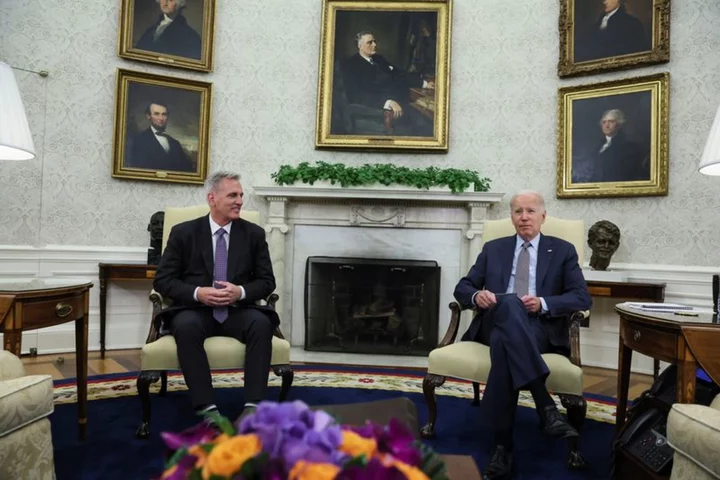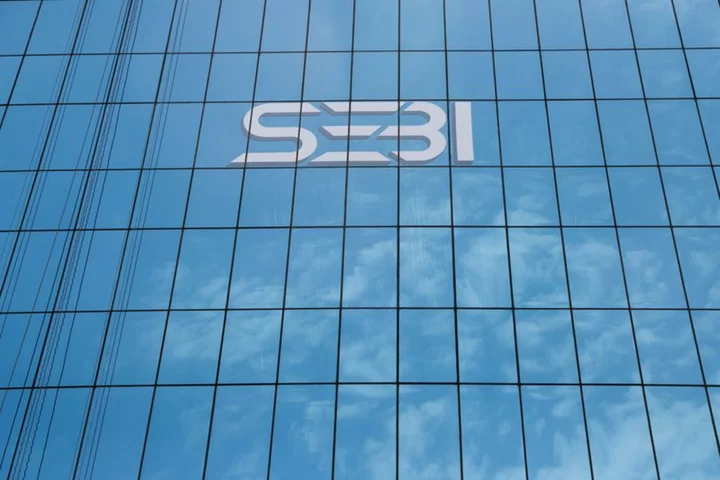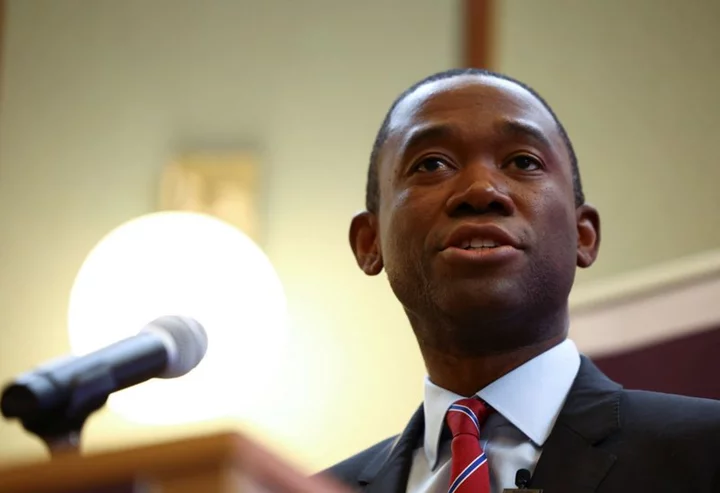WASHINGTON The U.S. Senate is debating a bill brokered by President Joe Biden and House Speaker Kevin McCarthy that lifts the government's $31.4 trillion debt ceiling while imposing spending caps and cuts on Biden's plan to boost funding for the IRS to audit wealthy Americans, among other things.
The Republican-controlled House of Representatives passed the bill on Wednesday evening in a bipartisan 314-117 vote.
Here's a summary of the deal:
A CAP ON DISCRETIONARY SPENDING
The deal would suspend the $31.4 trillion debt ceiling until Jan. 1, 2025, allowing the U.S. government to pay its bills.
In exchange, non-defense discretionary spending would be "roughly flat" at current year levels in 2024, "when factoring in agreed upon appropriations adjustments," according to White House officials.
They estimated that total non-defense discretionary spending excluding benefits for veterans would total $637 billion for the 2024 fiscal year, down marginally from $638 billion the year before. That total would also increase by 1% in 2025.
A BREATHER FOR THE 2024 ELECTION
The debt limit extension lasts past 2024, meaning Congress would not need to address the deeply polarizing issue again until after the November 2024 presidential election.
Still, tough conversations about how to allocate money under the new spending caps will need to take place in Congress this year.
INCREASED DEFENSE SPENDING
The deal would boost total defense spending to $886 billion, in line with Biden's 2024 budget spending proposal.
That is about a 3% increase from the $858 billion allocated in the current budget for the Pentagon and other defense-related programs in other agencies.
MOVING SPECIAL IRS FUNDING
Biden and Democrats secured $80 billion for a decade in new funding to help the Internal Revenue Service enforce the tax code for wealthy Americans in last year's Inflation Reduction Act, a move the administration said would yield $200 billion in additional revenue over the next 10 years.
The IRS earmarked the money for hiring thousands of new agents, and the extra tax revenue they generated was expected to offset a slew of climate-friendly tax credits.
The new legislation and subsequent appropriations would shift $10 billion in each of calendar years 2024 and 2025 in funding away the Internal Revenue Service. But administration officials believe the IRS can make do in the near term since it was funded over a 10-year period.
COVID CLAWBACK
Biden and McCarthy agreed to claw back much of the unused COVID relief funds as part of the budget deal. The estimated amount of unused funds is between $50 billion and $70 billion.
White House officials said some funds would be retained, including items related to vaccine funding, housing assistance and support for Native Americans.
WORK REQUIREMENTS
Biden and McCarthy battled fiercely over imposing stricter work requirements on low-income Americans for being eligible for food and healthcare programs.
No changes were made to Medicaid in the deal, but the agreement would impose new work requirements on some low-income people who receive food assistance under the program known as SNAP up to age 54, instead of up to age 50.
STUDENT LOANS
The new bill would require the Biden administration to follow through with a plan to end the current pause on student loan repayments by late August.
But it did not strike down Biden's plan to forgive $430 billion in student debt, which the Supreme Court is currently reviewing.
'PAYGO'
Republicans secured a budgeting mechanism known as "PAYGO," which is short for pay-as-you-go, that says new government agency actions affecting revenues and spending should be offset by savings.
But the law would give Biden's budget director the opportunity to issue waivers to that requirement and it would also limit judicial review of the decisions.
ENERGY PERMITTING
Biden and McCarthy agreed to tweak rules to make it easier for pipeline projects - including fossil-fuel based ones - to gain permit approval, but did not make any changes to help solar and wind projects get access to the nation's power grid.
The legislation does include swifter approval of a project backed by U.S. Senator Joe Manchin. The long-delayed $6.6 billion Mountain Valley natural gas pipeline would get streamlined approval under the legislation.
(Reporting by Jarrett Renshaw, Steve Holland Richard Cowan, Trevor Hunnicutt and Moira Warburton; Editing by Deepa Babington, Jacqueline Wong and Diane Craft)









